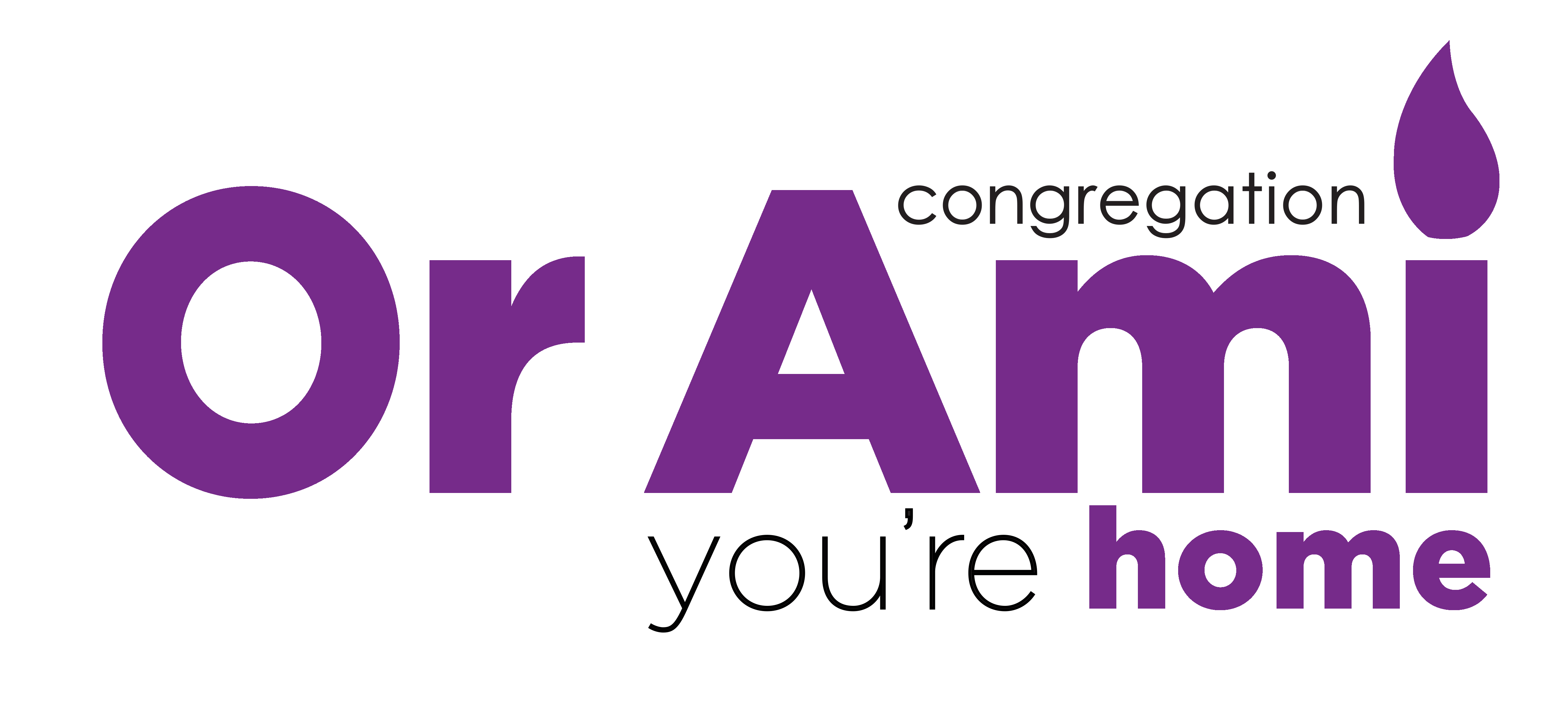Reflection for This Time – 04/16/24
by Rabbi Lana Zilberman Soloway
I was born in the former Soviet Union, where no one was really free to be who they want, especially not the Jewish people, who were hated and persecuted. My parents wanted to leave ever since they met in the late 1970’s, but the government refused to let them go.
When I was eight, my parents told me that there is a Jewish state called Israel, where Jewish people could be who they are without fear and persecution and so we were going to live there in order to be free people in our own land. Shortly thereafter, in November 1990, my family and I made Aliyah to Israel.
I remember a blue sky, palm trees everywhere, strangers welcoming us at the airport, singing and hugging us. It was hot, exciting, and overwhelming.
Of my many memories from my first days in our homeland, the most significant memory is from January 1991. Two months after our arrival, in the midst of the first Gulf war, Saddam Husein, the Iraqi leader, launched the first Scud missiles toward Israel. I vividly remember waking up in the middle of the night to the deafening sound of a siren, rushing to a shelter (that is if you had one, my family didn’t, so we went to my parent’s bedroom that had no windows), donning a gas mask and keeping it on, until a voice on the radio would say it’s okay to take it off. This experience repeated itself daily for nearly two months. So many days and nights filled with fear, anxiety, and not understanding what is going on. I wondered why now, when we moved from a country that hated us to the Jewish country that was supposed to be a safe haven for all Jews, why are we encountering such distress?
I lived in Israel most of my life, through which I have experienced so many stressful and scary moments, from the Gulf War sirens, through bus bombings in the 1990’s, to serving as an IDF officer in Gaza, living through random stabbing attacks in Jerusalem, and so much more.
When my children were born, I promised myself and them that I would do everything in my power to protect them and to give them a better, secure life. I have tried my best to do so ever since. Needless to say, the October 7th massacre and everything that followed shook my world and everything I believe in, but I am working very diligently on a daily basis to continue to keep believing in the goodness that exists in this world so that I won’t fall apart.
And then came April 13th. As if we haven’t been through enough this year, now, thirty-three years after those scary nights of the Iraqi attack, Iran, a country that has been threatening to destroy Israel for the longest time, decided to try to do so, launching hundreds of drones, ballistic missiles, and guided cruise missiles on Israel.
On Saturday night, Israeli citizens were notified that a massive missile barrage was winding its way toward Israel, that all educational activities for the following day were canceled, and the Ben Gurion airport was being closed. The level of fear, anxiety and stress were indescribable. How exactly were people supposed to go to sleep that night? How would parents protect their children from this reality?
698 sirens sounded in Israel during that night as 120 Ballistic missiles, 30 Cruise missiles, and 170 drones were fired from Iran – only 10 of them penetrating Israel. 70 drones and 3 ballistic missiles were downed by the United States, many others by Jordan. The cost of Israeli defense that night is estimated to be 1.5 billion dollars.
That night was one of the most scariest nights in Israeli history, and our survival relatively unscathed that night was nothing less than a miracle. 85 tons of explosives were directed toward Israeli territory, which resulted in 32 Israelis being treated for injuries and anxiety, luckily no one was killed. And yet, a seven-year-old Israeli girl, Amina al-Hasoni, is seriously injured and clinging to life. A miracle of the strong friendship and covenant between Israel and the United States, a miracle of a 30-year-old peace agreement between Israel and Jordan, and a miracle of resilience, prayer, and hope.
We now have another story to tell around our Passover seder, when we get to the part of: b’chol dor vador… in every single generation we should see ourselves as if we… And while we retell the Passover story(ies) and while we teach ourselves and the younger generations, let us make space for three lessons from that scary night:
- The power of Prayer.
Don’t skip this part of the Haggadah this year.
Vehi sheamda le avoteinu velanu. She’lo echad bilvad amad aleinu lechaloteinu. Ela sheb’chol dor vador omdim aleinu lechaloteinu. VeHakadosh baruch hu matzileinu miyadam. “And this is that promise which sustained our ancestors and us. That it is not one enemy alone that rose up against us to destroy us. In each generation there are those standing up against us to destroy us. But the Holy One, Blessed Be God, saved us from their hand.” - The power of Friendship.
At your Seder table, share your gratitude for the people in your life. Value your relationships and your partnerships, even when things feel hard. We cannot succeed in this life alone. We need allies. - The power of Hope.
At the end of the Seder, when it’s time to fill up the additional cup of wine and open the door for Elijah – do that whole-heartedly. Fill up that cup all the way, let the wine (juice) overflow, fill your heart with hope, believe that Elijah will come, and believe that this life should and will be better. Our life is worth living, worth fighting for, and worth raising our children and grandchildren in.
Am Israel Chai.
